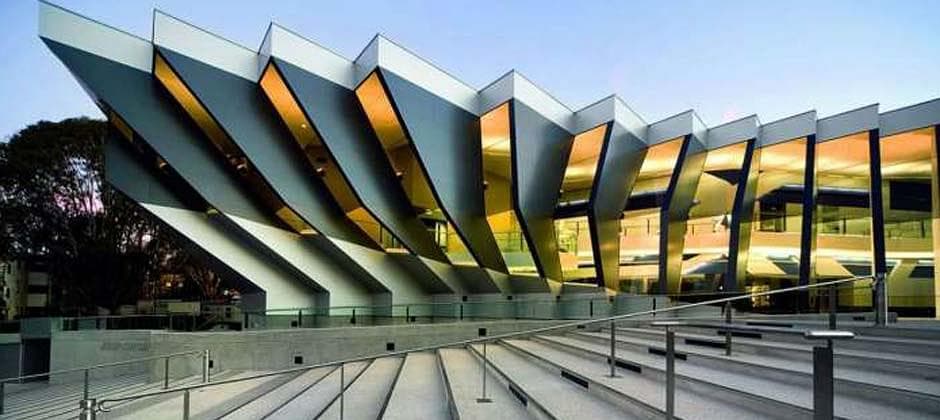Program Structure:
The Master of Digital Humanities and Public Culture requires the completion of 72 units, of which a minimum of 48 units must come from completion of 8000-level courses.
The 72 units must consist of:
12 units from completion of Research Training courses from the following list:
- HUMN6001 Introduction to Digital Humanities and Public Culture - Tools, Theories and Methods
- HUMN6003 Digital Humanities and Public Culture: Projects and Engagement
- HUMN8028 Digital Culture and Society - Critical Theories and Methodologies
- HUMN8029 Digital Humanities and Public Culture - Issues and Debates
12 units from completion of Research Experience courses from the following list:
- ANIP6503 Australian National Internships Program A
- ANIP6505 Australian National Internships Program B
- HUMN8030 Digital Humanities and Public Culture Research Project
- HUMN8031 Digital Humanities and Public Culture Research Project (Advanced)
24 units from completion of Discipline Focus courses from the following list:
- ARTH6162 Art in the Digital Age
- ARTV6000 Animation
- ARTV6003 Video Art
- ARTV6059 Immersive Media
- COMP6240 Relational Databases
- COMP6261 Information Theory
- COMP6262 Logic
- COMP6300 Computer Organisation and Program Execution
- COMP6340 Networked Information Systems
- COMP6466 Algorithms
- COMP6490 Document Analysis
- COMP6710 Structured Programming
- COMP6720 Art and Interaction in Computing
- COMP6730 Programming for Scientists
- COMP6780 Web Development and Design
- DESN6001 Digital Form and Fabrication
- DESN6002 Foundations of Creative Code
- DESN6003 Creative Data Visualisation: Representing Data in Visual and Material Form
- DESN6004 Dynamic Design and Generative Systems
- DESN6006 Front-End Web: Crafting Online Experience
- GEND6501 Posthuman bodies
- HIST6022 Aboriginal and Torres Strait Islander History
- HIST8011 Biography and History
- HIST8030 Decolonising history? Indigenous perspectives, deep history, and postcolonial challenges
- HUMN6001 Introduction to Digital Humanities and Public Culture - Tools, Theories and Methods
- HUMN6003 Digital Humanities and Public Culture: Projects and Engagement
- HUMN8012 Writing, World Histories and Lives: Research Project
- HUMN8019 UNESCO and World Heritage: Conserving Heritage Values
- HUMN8026 Writing in the Public Sphere
- HUMN8027 Critical Issues in Heritage and Museum Studies
- HUMN8032 Writing for the Research Process
- HUMN8033 Tourism, Heritage and Globalization
- HUMN8036 Who do we think we are? Using Archives and Special Collections
- HUMN8039 Indigenous Heritage Management and Debates in Digital Heritage
- LING6023 Dictionaries and Dictionary-Making
- LING8026 Qualitative Research Methods in Language Studies
- LING8027 Quantitative Research Methods in Linguistics
- MUSC8017 Museums and Collections: Key Concepts and Practices
- MUSI6009 Music and Digital Media
- SOCR8001 Statistics for Social Scientists
- SOCR8003 Qualitative Research Analysis
- SOCR8006 Online Research Methods
- SOCR8008 Qualitative Data Collection
- SOCR8009 Quantitative Data Collection
- SOCY6066 Social Science of the Internet
24 units from completion of THES8103 Thesis
Students must have the written agreement of an identified supervisor in order to enrol in THES8103 Thesis one semester in advance of the start date of the Thesis semester.
Students who do not have the written agreement of an identified supervisor one semester in advance, or whose agreed supervisor either subsequently leaves the university or is on leave from the university, will be transferred to the Master of Digital Humanities and Public Culture.
A course used to satisfy the requirements of one list may not be double counted towards satisfying the requirements of another list.
Master Research
This degree has been accredited at AQF Level 9 with a significant component of Research.
Master Research Training
This degree has been accredited at AQF Level 9 with a significant component of Research.
Capstone Courses
[THES8103]
